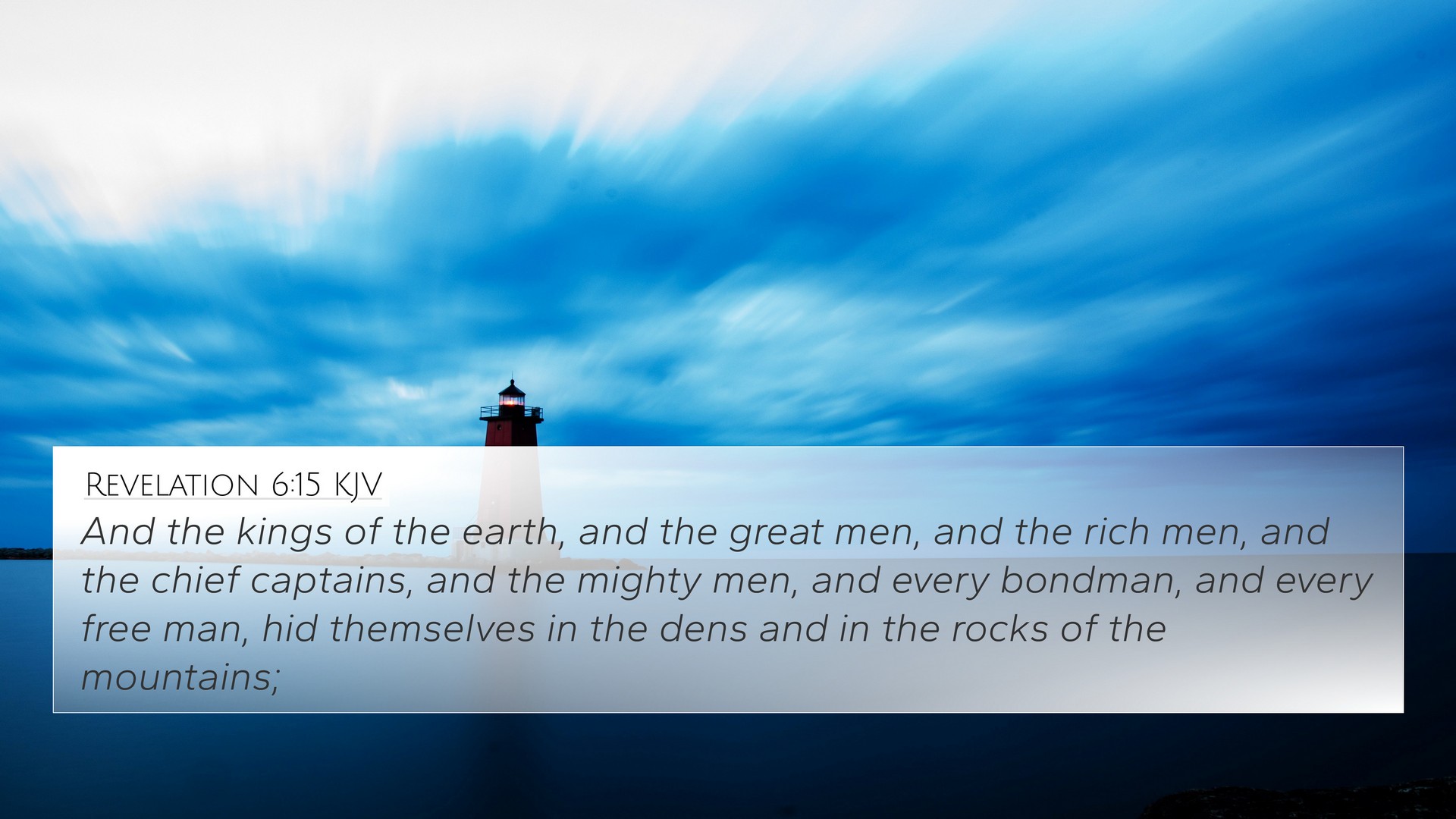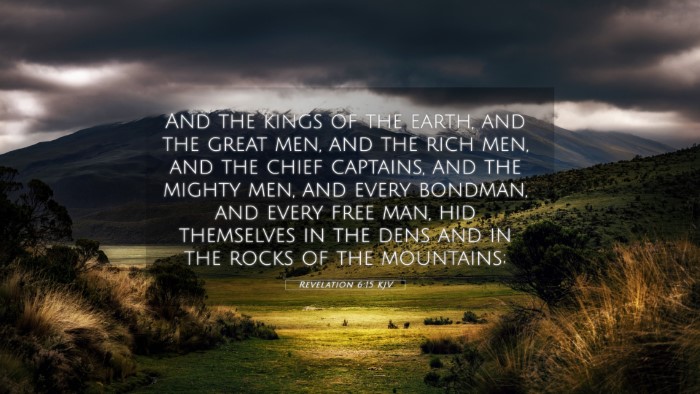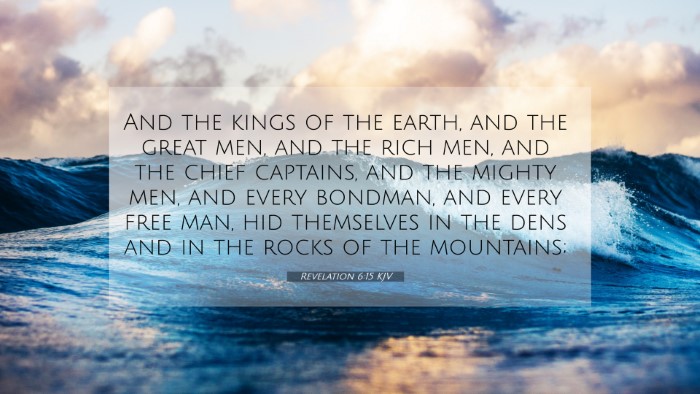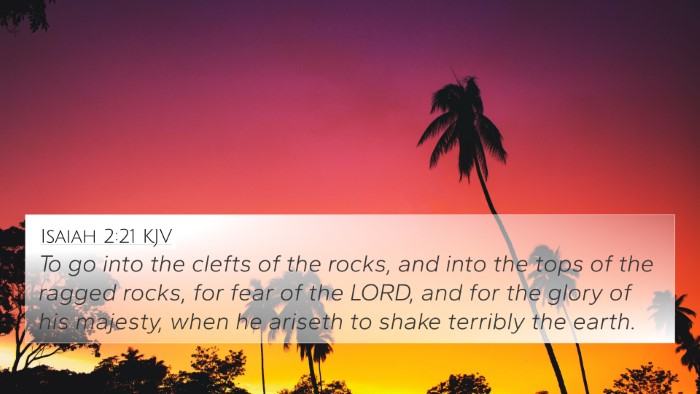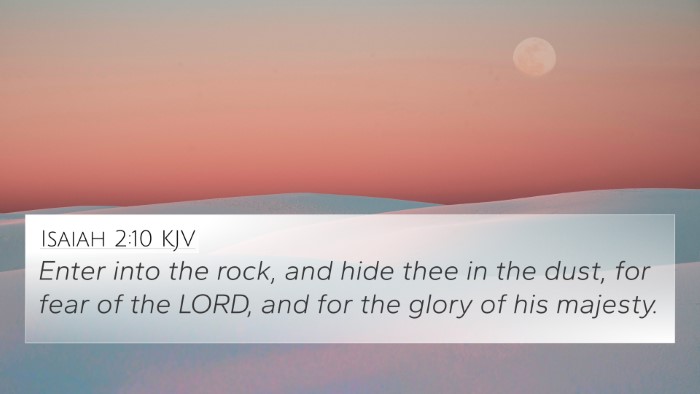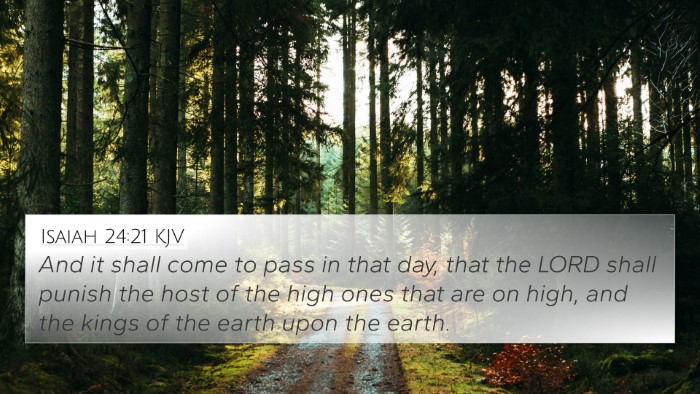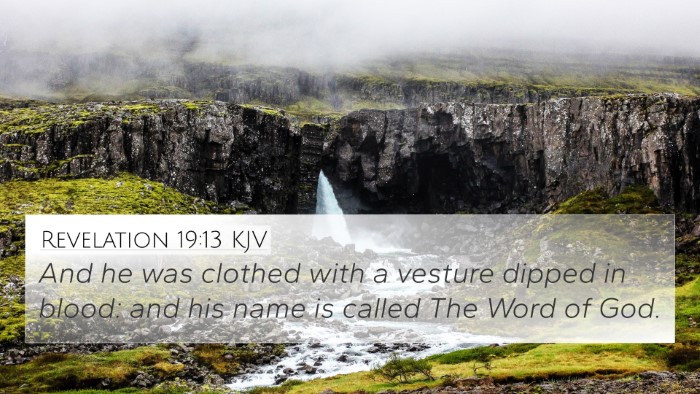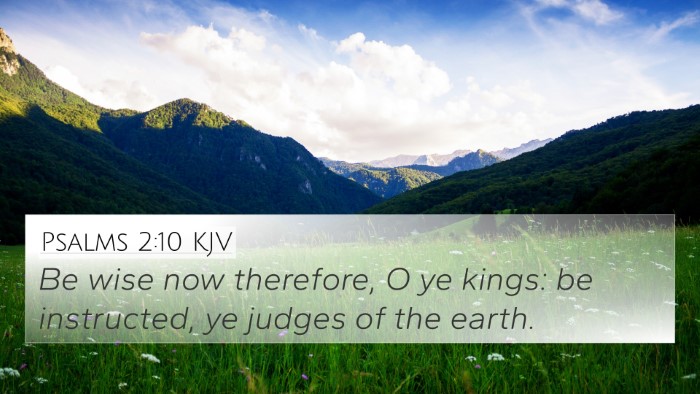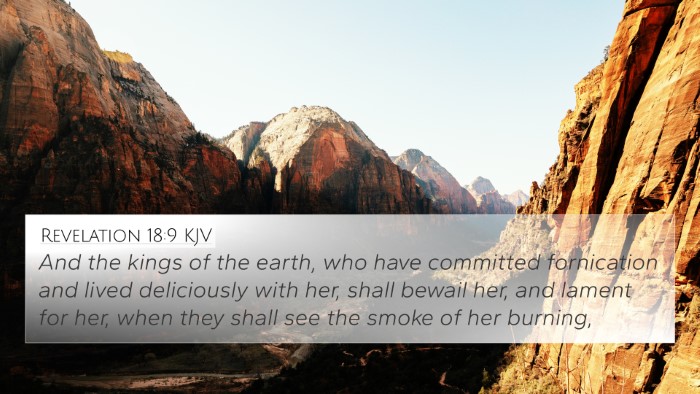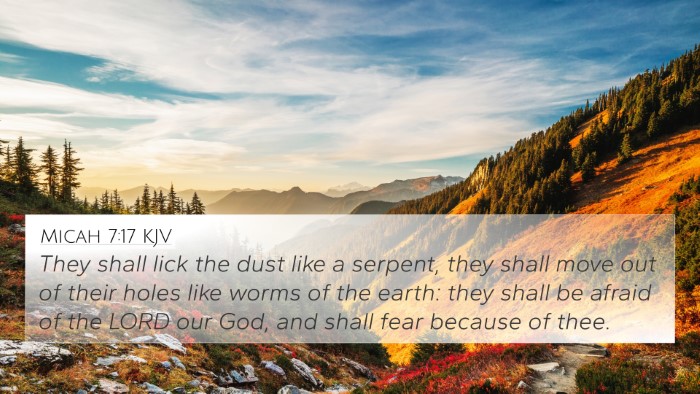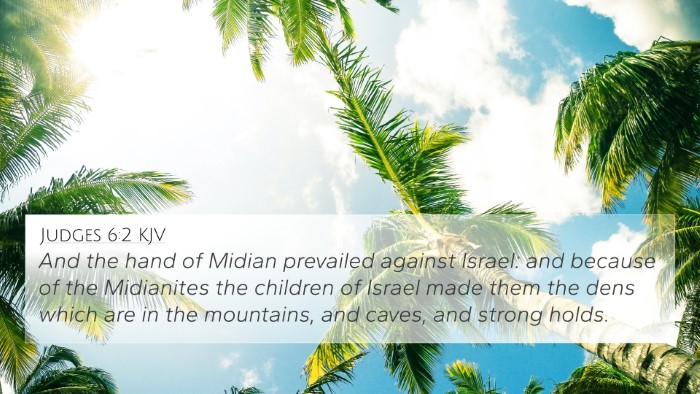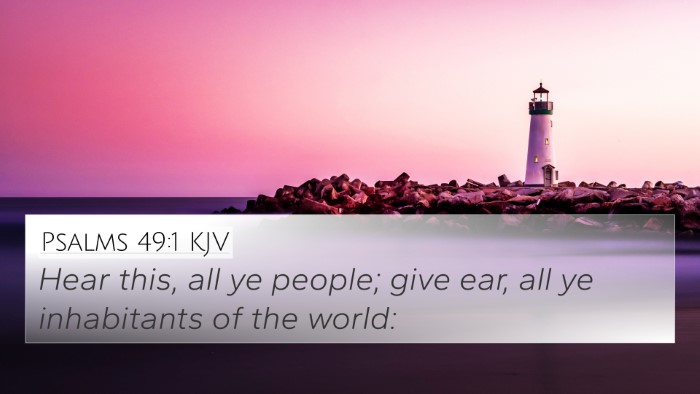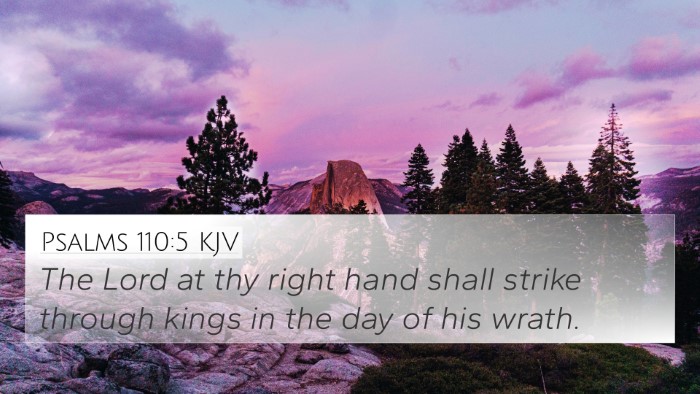Understanding Revelation 6:15
Revelation 6:15 states:
"And the kings of the earth, and the great men, and the rich men, and the chief captains, and the mighty men, and every bondman, and every free man, hid themselves in the dens and in the rocks of the mountains;"
Summary of Revelation 6:15
This verse depicts a moment of profound fear and judgment during the opening of the sixth seal. The imagery presents a powerful realization of the authority and judgment of God, leading to a desperate reaction from various societal classes. From rulers to slaves, all seek refuge from the oncoming wrath.
Commentary Insights
Matthew Henry's Commentary
Henry emphasizes the universal nature of fear experienced by all strata of society when faced with divine judgment. He notes that wealth, power, and status are rendered meaningless when confronted with God's sovereignty. Believers must observe how earthly distinctions are stripped away in the presence of divine retribution.
Albert Barnes' Commentary
Barnes highlights the symbolic elements within the verse, suggesting that the “kings” and “mighty men” represent those who usually exert influence and control. However, their power is futile in the face of God's impending wrath. This demonstrates the futility of human strength against divine authority.
Adam Clarke's Commentary
Clarke points out the imagery of hiding and seeking refuge, which signifies a tremendous fear of judgment. The call to the mountains and rocks is a reference to humanity’s utter desperation. Clarke correlates this hiding with other scripture where judgment leads to terror, emphasizing the seriousness of falling into the hands of an angry God.
Cross-Referenced Verses
Revelation 6:15 connects deeply with several key scriptures that emphasize themes of judgment, fear, and the human response to divine authority. Below are significant cross-references:
- Isaiah 2:19: "And they shall go into the holes of the rocks, and into the caves of the earth..." - This verse shows a parallel in the fear of judgment and hiding from the Lord.
- Revelation 6:16: "And said to the mountains and rocks, Fall on us..." - This continuation reflects the overwhelming fear faced by humanity during God's judgment.
- Luke 23:30: "Then shall they begin to say to the mountains, Fall on us; and to the hills, Cover us..." - A direct link to the fear that accompanies judgment.
- Hosea 10:8: "The high places of Aven, the sin of Israel, shall be destroyed: the thorn and the thistle shall come up on their altars; and they shall say to the mountains, Cover us; and to the hills, Fall on us..." - A similar invocation of nature in response to impending judgment.
- Amos 9:2: "Though they dig into hell, thence shall mine hand take them; though they climb up to heaven, thence will I bring them down." - Illustrates the inescapability of divine judgment.
- James 4:10: "Humble yourselves in the sight of the Lord, and he shall lift you up." - A reminder that humility is essential before God, contrasting the pride that leads to fear in judgment.
- Matthew 24:30: "And then shall appear the sign of the Son of man in heaven..." - This relates to the context of apocalyptic fear and the coming of Christ.
- Psalm 76:7: "Thou, even thou, art to be feared: and who may stand in thy sight when once thou art angry?" - Emphasizes the fear of God’s presence and judgment.
- 1 Thessalonians 5:3: "For when they shall say, Peace and safety; then sudden destruction cometh upon them..." - Highlights how humanity's false security crumbles before God's judgment.
- Philippians 2:10-11: "That at the name of Jesus every knee should bow... and that every tongue should confess that Jesus Christ is Lord..." - All beings, regardless of status, will ultimately recognize God's authority.
Thematic Connections and Insights
Revelation 6:15 serves as a crucial text in understanding the divine judgment theme in scripture. It highlights:
- Human Fragility: The verse portrays how human power fails under divine authority.
- Universal Fear of Judgment: All people, regardless of status, share the fear of God's judgment.
- The Inevitability of Accountability: Hiding represents an instinctive understanding of needing to face one's actions.
- Divine Sovereignty: The overwhelming theme reinforces that God reigns over all, and His judgment cannot be evaded.
Conclusion
Revelation 6:15 and its surrounding verses offer a profound context regarding human responses to divine judgment. As believers study the connections between Bible verses, they gain insight into the thematic elements of judgment throughout scripture. The fear presented here serves as a sobering reminder of God's holiness and the importance of genuine repentance and humility before Him.
Further Study Tools for Bible Cross-Referencing
To dive deeper into the themes presented in Revelation 6:15, consider utilizing:
- Bible Concordance
- Bible Cross-Reference Guide
- Cross-Referencing Bible Study Methods
- Bible Reference Resources
- Comprehensive Bible Cross-Reference Materials
Exploring Inter-Biblical Dialogue
Understanding the connections between this verse and others allows for a richer grasp of Biblical texts and encourages believers to explore the intricate tapestry of themes throughout scripture.
